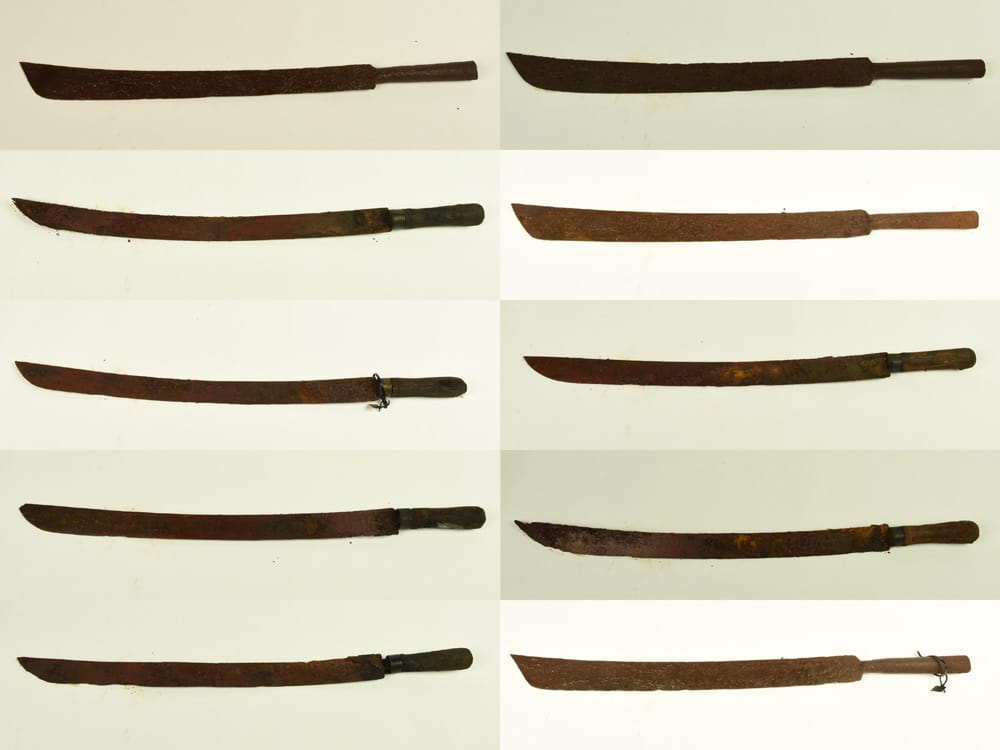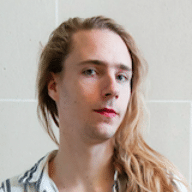Chris Lomans: In the stomach of the world
Eighteen young Flemish and Dutch authors bring an artefact to life from the Slavery exhibition at the Rijksmuseum in Amsterdam. Chris Lomans gives a voice to machetes that were intended for sugar cane plantations.
 Machetes from the early 19th century that were intended for sugar cane plantations but sank during transport.
Machetes from the early 19th century that were intended for sugar cane plantations but sank during transport.© Museum Kaap Skil, Texel
In the stomach of the world
Once we were ore. We could have become everything. But we did not become anything.
We began our journey full of hope. We were shiny. Whatever the light that fell on us. We had a purpose. Ours was to be a future in which we were needed, in which we would be deployed on a scale never before seen. We were surprised to find how expendable we turned out to be.
We are surrounded by miles of silt. The weight of all that water presses down on us. Has done for years. We cannot move. Touch us and you will bleed, but nobody can touch us. The sea takes care of that.
We never had a chance to do what we were made for. We never cut through the fibrous stalks of sugarcane. We never cut a rope to loosen something that was tied together. We never scraped tender, roasted meat off a chicken bone. We just lay somewhere. We sank into the sand and were forgotten.
We have had time to think. What we were made for? We were made by white hands to be used by black hands, to somehow or other be profitable for white hands. Our true purpose had been determined by patent. And it was not cutting. We were instruments of profit. From the moment the blacksmith hammered us into this shape, we were prisoners of this system. Of this efficient machine that assimilates everything it encounters and turns it into profit. In a way, we are happy about the shipwreck. A storm that crossed our course. Not that it solved anything. No sooner had we sunk than a next load of blades was shipped and pressed into black hands, where they caused stinging blisters, made a profit.
We have had time to think. We are castaways. We are our own iron straitjacket. We want to rise up. We have the necessary strength in our bodies, but we cannot move. An implosion takes place inside of us in which something goes back on itself. We are wasted potential. We are perverted strength. We have become sick of our perfect sharpness. So we sing. We sing a song you can cut yourself on. A song nobody wants to touch. A song of sharpness.
The longer we lie here, the more we realise that we are decomposing. That this has become our purpose: to disintegrate and become something new. We wish it were easy, but alas. It is a struggle. Rust takes over our body. Our sharpness dulls. We know how unbelievably long this will take. We must be broken down molecule by molecule. The saltwater enters our pores, reacts with our skin, pulls us apart.
Once we were ore. We could have become everything. Lying in the stomach of the world we are rendered harmless. On our skin, a war is being fought.












